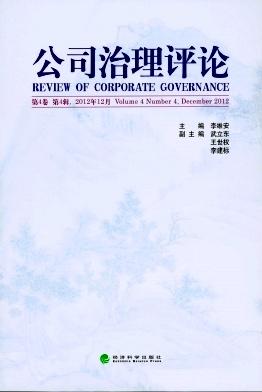Will Tenure Voting Give Corporate Managers Lifetime Tenure?
引用次数: 10
Abstract
Dual-class voting systems have been widely employed in recent initial public offerings by large tech companies, but have been roundly condemned by institutional investors and the S&P 500. As an alternative, commentators have proposed adoption of tenure voting systems, where investor voting rights increase with the length of time that they hold shares. In furtherance of this proposal, some Silicon Valley investors have requested that the SEC permit the creation of a new stock exchange where all of the companies will be required to use tenure voting systems. Is tenure voting a better choice than dual-class stock for both corporate management and shareholders? In this paper, we review the arguments for and against tenure voting that have been made in the literature. In order to shed light on these claims veracity, we generate the first data base that documents institutional investor portfolio turnover rates for stock. We use this data to inform our mathematical voting model of tenure voting to show how its adoption would affect control rights within the corporation. We make two main findings that shed light on this question. First, we show that when corporate management holds a large block of company stock prior to the implementation of tenure voting, and retains at least 20-30% of the total number of company shares on a long term basis, then tenure voting will insure that corporate managers maintain control of the company even in the face of an attempted change of control transaction by a highly motivated dissident shareholder. Our second important finding is that if corporate management chooses to sell off its large initial block of the company’s stock over time, so that inside ownership levels drop eventually down to a low percentage level with the majority of ownership held by institutional shareholders with different investment horizons, then the use of tenure voting systems does little to protect management control in a proxy contest for corporate control. We conclude that tenure voting does indeed represent an intermediate form of voting control from a managers’ perspective: it does not guarantee management control, as dual-class share structures do, but does give control to management who maintain large equity stakes in the firm. Institutional investors are likely to see it as an improvement over dual-class stock structures in terms of giving them corporate governance rights, although less advantageous to these shareholders’ rights than a one share, one vote voting system.任期投票会给公司经理带来终身任期吗?
近年来,大型科技公司在首次公开发行(ipo)中广泛采用了双层投票制度,但遭到了机构投资者和标准普尔500指数(S&P 500)的严厉谴责。作为替代方案,评论人士建议采用终身投票权制度,即投资者的投票权随着持股时间的延长而增加。为了推进这一提议,一些硅谷投资者要求美国证券交易委员会允许创建一个新的证券交易所,所有公司都将被要求使用任期投票制度。对公司管理层和股东来说,终身投票权是否比双重股权结构更好?在本文中,我们回顾了文献中提出的支持和反对任期投票的论点。为了阐明这些说法的真实性,我们生成了第一个记录机构投资者投资组合股票换手率的数据库。我们使用这些数据来告知我们的终身任期投票的数学投票模型,以显示其采用将如何影响公司内部的控制权。我们有两个主要发现来阐明这个问题。首先,我们表明,当公司管理层在实施任期投票之前持有大量公司股票,并长期保留至少20-30%的公司股份时,那么任期投票将确保公司经理即使面对高度动机的持不同政见的股东试图改变控制权交易时也能保持对公司的控制。我们的第二个重要发现是,如果公司管理层选择随着时间的推移出售其最初持有的大量公司股票,从而使内部所有权水平最终下降到一个较低的百分比水平,而大多数所有权由不同投资范围的机构股东持有,那么在公司控制权的代理权竞争中,使用任期投票制度对保护管理层控制权几乎没有作用。我们得出的结论是,从管理者的角度来看,任期投票确实代表了一种中间形式的投票控制:它不像双重股权结构那样保证管理层的控制,但确实赋予了持有公司大量股权的管理层控制权。机构投资者可能会认为,这是对双重股权结构的改进,因为它赋予了他们公司治理权,尽管对这些股东的权利来说,不如一股一票的投票制度有利。
本文章由计算机程序翻译,如有差异,请以英文原文为准。
求助全文
约1分钟内获得全文
求助全文

 求助内容:
求助内容: 应助结果提醒方式:
应助结果提醒方式:


